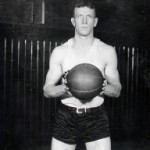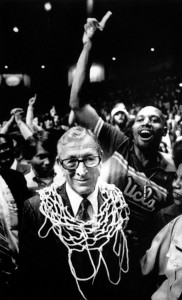I just finished The Art of Fielding, a 2011 novel by Chad Harbach that centres on baseball but ranges widely (sometimes wildly) from Herman Melville to environmental activism to collegiate sexual mores to the nature of the life well-lived. I liked best its many meditations on the meaning of sport, and the pursuit of greatness in it. Here is one passage:
“The making of a ballplayer: the production of brute efficiency out of natural genius.
“For Schwartz, this formed the paradox at the heart of baseball, or football, or any other sport. You loved it because you considered it an art: an apparently pointless affair, undertaken by people with a special aptitude, which sidestepped attempts to paraphrase its value yet somehow seemed to communicate something true or even crucial about The Human Condition…, that we’re alive and have access to beauty, can even erratically create it, but will someday be dead and will not.
“Baseball was an art, but to excel at it you had to become a machine. It didn’t matter how beautifully you performed sometimes, what you did on your best day,how many spectacular plays you made. You weren’t a painter or a writer — you didn’t work in private and discard your mistakes, and it wasn’t just your masterpieces that counted. What mattered, as for any machine, was repeatability…”
Chad Harbach is a new writer to me. He is the co-founder a literary and cultural magazine called n+1, also new to me. He writes about baseball like Henry the Shortstop, his protagonist, fields ground balls: with grace, the occasional wow, and deep understanding.
He came into my line of sight rather pathetically: a student in my writing class in a Chinese university, hectored by me to find something fun/interesting/pleasurable to read in English rather than the stiff, classical and too damnedly difficult texts they typically have chosen for them, showed up with The Art of Fielding. She’d paid 77 yuan for the paperback, about 13 bucks, which was in a Chinese bookstore solely because it was a New York Times notable book. Her choice was a sad, bitter and completely unintentional joke on me and my sometimes absurd hopes for students, and nobody got the joke but me: not only is it a fine and rather literary novel, it’s about baseball. Ms. An hadn’t the faintest clue what the book was about, and hadn’t even bothered trying to begin it. I released her from this painful (or patently fake) fantasy of fiction reading, then borrowed the book, and have so far been unsuccessful in convincing her to allow me to pay her for it. (It’s great. It’s so laughably/pitiably far beyond the grasp of nearly any Chinese student, though not apparently a financial stretch for this one.)


